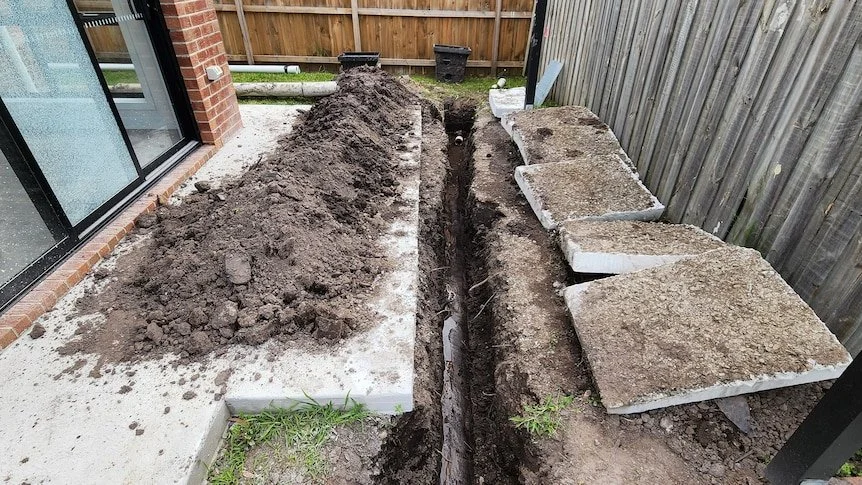The Plumbing Insurance Scheme in Victoria
Plumbing defects can cause serious damage and costly disputes, but in Victoria, every licensed plumber must carry insurance that protects homeowners and building owners. Knowing how and when to use this protection is key to enforcing your rights and recovering your losses.
More Information
Auto-protection
Applies to all plumbing work requiring a compliance certificate in VIC
What’s Protected
Defective, incomplete, or non-compliant plumbing work - including damage it causes
Time Limits
Coverage generally lasts 6 years from the date of the compliance certificate
How We Help
Clear advice, insurer negotiations, and strong representation
Who and how we help
We assist homeowners, subsequent property owners, builders, and developers across Victoria in making claims under the Plumbing Insurance Scheme.
Whether you’re dealing with defective or incomplete plumbing work, damage caused by poor workmanship, or financial loss from unfinished jobs, our team guides you through the entire process. From reviewing compliance certificates and uncovering insurer details, to preparing claims, obtaining expert reports, and pursuing compensation through negotiation, VCAT, or court if required.
Our goal is to protect your rights, recover your losses, and resolve disputes as efficiently as possible.
FAQ
-
All licensed Victorian plumbers must have insurance.
-
To trigger the plumbing insurance policy, the relevant plumber is not required to be dead, missing, bankrupt, or have failed to comply with a tribunal or court order.
If the plumber has been requested to return to site and rectify the plumbing defects, and the plumber has either not returned or not satisfactorily addressed the defects within a reasonable time, you are able to take steps to discover who the relevant insurer(s) are and proceed to make a claim on that policy. You should seek legal advice of what a reasonable time is in these circumstances. Our team is highly experienced in these kinds of disputes.A "domestic building contract" means a contract to carry out, or to arrange or manage the carrying out of, domestic building work other than a contract between a builder and a sub-contractor.
-
Licensed plumbers must have insurance that indemnifies them in respect of plumbing work for which a compliance certificate is required from the time they agree to carry out that work until:
6 years after the plumber last issued a compliance certificate in relation to that work; or
if the plumber does not issue a compliance certificate in relation to the work, 6 years after the date the plumber stopped carrying out the work.
-
If you can establish the following elements, you should consider pursuing a claim against the plumber’s insurer:
Is there defective plumbing work identified at your property?
Was the defective work carried out by a licensed plumber?
Was a compliance certificate issued for that work?
Is it less than 6 years since that compliance certificate was issued?
Lodging an insurance claim against the plumber’s insurer and resolving the claim will not require you to pay an excess.
There is no requirement for a contract/agreement to exist between the building owner and the plumber for the building owner to claim against the plumber’s insurance. Therefore, whether you:
engaged a builder to construct the house, apartment or other building; or
you acquired the house, apartment or other building off the plan; or
you are the subsequent owner of the house, apartment or other building; then
all work subject to a compliance certificate carries insurance to protect the owner/consumer against defective work by a plumbing practitioner.
In certain situations, you are able to enforce the policy against the plumber’s insurer without any involvement from the plumber.
-
Typically, some of the liability that the plumber’s insurer will potentially cover is:
The reasonable legal costs (such as our costs) and expenses (such as expert reports) associated with the successful enforcement of a claim against the plumber or their insurer;
The cost of rectifying defective plumbing work;
Any error in design or specification that is incidental to any plumbing work undertaken by the plumber;
The cost of consequential damage by the ‘rip and tear’ process of rectifying plumbing defects;
Use of defective products by the plumber, irrespective of the plumber’s intention at the time the work was carried out;
Non-completion of work you have already paid for;
Any liability arising from any consequential financial loss reasonably incurred by the building owner as a result of any defects or non-completion of the plumbing work, including, but not limited to:
the loss of any deposit or progress payment (or any part of any deposit or progress payment); and
the cost of alternative accommodation, removal and storage costs.
Any liability that arises as a result of any personal injury to a third party, or any loss or damage to the property of a third party (other than property that is part of the plumbing work itself), that arises out of the activities of the plumber in relation to plumbing work;
Any liability that arises as a result of any personal injury to a third party, or loss or damage to the property of a third party (other than property that is part of the plumbing work itself), directly or indirectly related to or arising from the plumbing work.
-
The Licensed Plumbers General Insurance Order 2002 contains an extensive definition of “defects” in plumbing work, which includes:
(a) a failure to carry out the work in a proper and workmanlike manner and in accordance with any plans and specifications set out in the contract;
(b) a failure to use materials in the work that are good and suitable for the purpose for which they are used;
(c) the use of materials in the work that are not new (unless the contract permits use of materials that are not new);
(d) a failure to carry out the work in accordance with, and in compliance with, all laws and legal requirements including, without limiting the generality of this paragraph, the Building Act 1993 (Vic) and any regulations made under that Act;
(e) a failure to carry out the work with reasonable care and skill and, in the case of domestic plumbing work, a failure to complete the work:
(i) by the date (or within the period) specified by the contract; or
(ii) within a reasonable time, if no date (or period) is specified.
(f) if the contract states the particular purpose for which the work is required, or the result which the building owner wishes the work to achieve, so as to show that the building owner relies on the plumber’s skill and judgement, a failure to ensure that the work and any material used in carrying out the work:
(i) are reasonably fit for that purpose; or
(ii) are of such a nature and quality that they might reasonably be expected to achieve that result;
(g) a failure to maintain a standard or quality of plumbing work specified in the contract.
“Dean is one of those people who only come along every now and then in the business world…”
Dean is one of those people who only come along every now and then in the business world, particularly in insurance. Dean is young, enthusiastic and comes highly recommended for any matters involving complex issues and detailed work.
- David Pockett, Chartered Loss Adjuster (Ret)
Contact us
We are experts in resolving plumbing insurance law disputes. Our friendly legal staff would be delighted to have an initial, free and no-commitment consultation with you to discuss your legal needs.
Contacting a lawyer can appear daunting. However, not at Bastion Legal. We are happy to discuss your matter with you at any time, irrespective of what information you have on hand.
* Reforms under the Building Legislation Amendment (Buyer Protections) Bill 2025 are not yet in effect; the information above reflects the current law.







